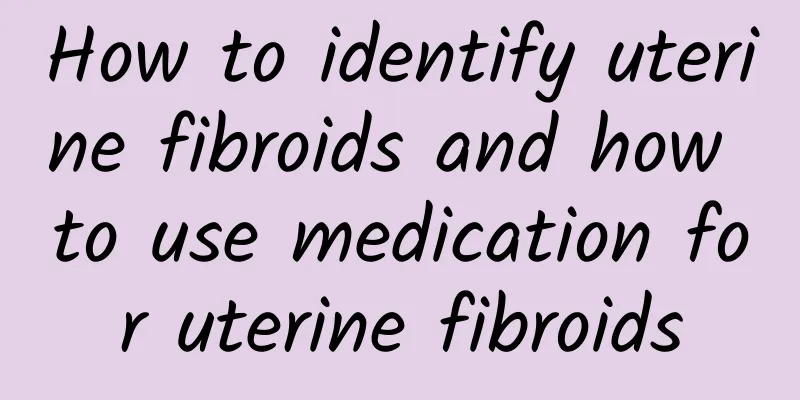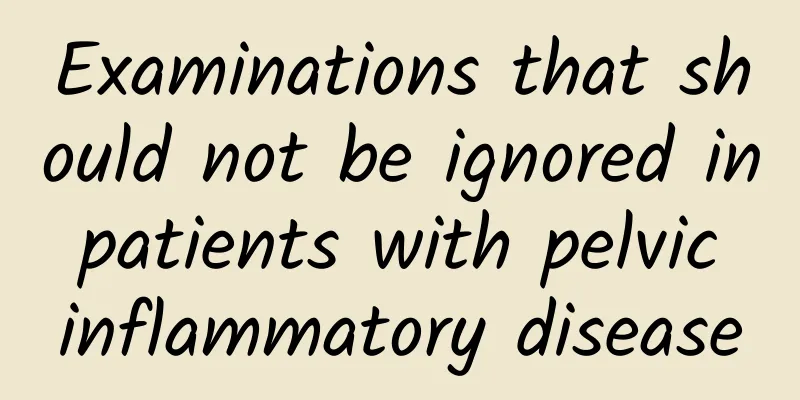How to identify uterine fibroids and how to use medication for uterine fibroids

|
Uterine disease has always been a major problem affecting women's health. Due to uterine disease and untimely treatment, many women will take a one-size-fits-all approach. But before treatment, we must recognize the severity of uterine fibroids. So, how to determine the severity of uterine fibroid symptoms? Many patients with uterine fibroids are very concerned about this issue. In fact, not all patients with uterine fibroids have symptoms. Whether uterine fibroids have symptoms and their severity mainly depends on the location, size, number and complications of the fibroids. The larger the fibroids, the more symptoms there are. Some fibroids are small, grow slowly, have no symptoms, and can never be found in a lifetime. However, some fibroids are small and may have symptoms, which is more common in myometrial fibroids because myometrial fibroids are often accompanied by adenomyosis. Most patients come to see a doctor because they have symptoms. Common symptoms of uterine fibroids include menstrual pain, heavy menstrual flow, abdominal lumps, vaginal discharge, compression symptoms, etc. Patients with uterine fibroids and adenomyosis will experience menstrual pain symptoms. The reason for heavy menstrual flow due to uterine fibroids is that the area of the endometrium increases, contraction is unfavorable, and the endometrial venous plexus is congested and dilated. Sometimes, the rupture and bleeding of angry veins on the surface of the submucosal fibroids will directly lead to heavy bleeding. Uterine fibroids can cause compression symptoms on surrounding organs. For patients with mild uterine fibroids, most people will undergo conservative drug treatment. The treatment of uterine fibroids is nothing more than drugs and surgery. The specific method needs to be based on the growth location of the uterine fibroids. According to the growth location of the fibroids, it can be divided into three categories: intramural fibroids, subserosal fibroids, and submucosal fibroids. If the first two types are mostly asymptomatic, treatment is generally not required. Especially for people approaching menopausal age, due to the low estrogen level after menopause, the fibroids will naturally shrink or disappear, and only regular check-ups are required. However, when the review finds that the fibroids are enlarged or the symptoms are obvious, further treatment should be considered. Treatment of uterine fibroids must be early. Early treatment will not make the treatment seem so complicated and can allow patients to recover well. The following are several commonly used drugs for uterine fibroids: Dahuang Zhechong Pills: used for blood stasis, abdominal lumps, skin discoloration, dark eye sockets, hot flashes, and amenorrhea. Xiaojie'an Capsules: oral capsules, promote blood circulation and remove blood stasis, soften and disperse nodules, and can be used for breast lumps, mammary lobular hyperplasia, ovarian cysts, and uterine fibroids caused by qi stagnation and blood stasis. Gongliuqing Capsules: promote blood circulation and remove blood stasis, eliminate leukoplakia and resolve accumulation, nourish blood and clear heat. Used for lower abdominal distension and pain caused by blood stasis, dark purple menstrual lumps, intramural uterine fibroids, and subserosal fibroids. |
Recommend
How big is the ovarian cyst that does not require surgery?
How big does an ovarian cyst have to be before it...
What should I do if I have uterine fibroids during pregnancy? Treatment of uterine fibroids during pregnancy
What should I do if I have uterine fibroids durin...
Abortion hospital ranking selection
In the moment of hazy love, the arrival of a litt...
What are the symptoms of pelvic inflammatory effusion?
What are the symptoms of pelvic inflammatory effu...
The main cause of cervical hypertrophy is ovarian dysfunction
Cervical hypertrophy is mainly caused by inflamma...
How to prevent hyperprolactinemia from lifestyle habits
Hyperprolactinemia can also affect women’s reprod...
What is the cause of female infertility after abortion? There are two main causes of female infertility after abortion.
Infertility after artificial abortion accounts fo...
Can cervical precancerous lesions be cured?
Cervical cancer is divided into early, middle and...
Early treatment of vulvar leukoplakia can start with daily care
The treatment of early vulvar leukoplakia can mai...
What are the main symptoms of cervical hypertrophy?
Cervical hypertrophy is a type of chronic cervici...
How much do you know about the treatment of pelvic inflammatory disease?
Pelvic inflammatory disease is a common disease, ...
Can adnexitis heal on its own?
Adnexitis refers to an inflammatory disease of th...
What should I do if I am getting fatter while staying at home during the epidemic prevention period? The Korean fitness queen teaches you how to do lazy exercises, and you can easily get your waistline
South Korea's most popular home body shaping ...
Women should have a certain understanding of the examination of irregular menstruation
Irregular menstruation is a common disease in wom...
How to detect ectopic pregnancy earlier?
How to detect ectopic pregnancy earlier? Most peo...









